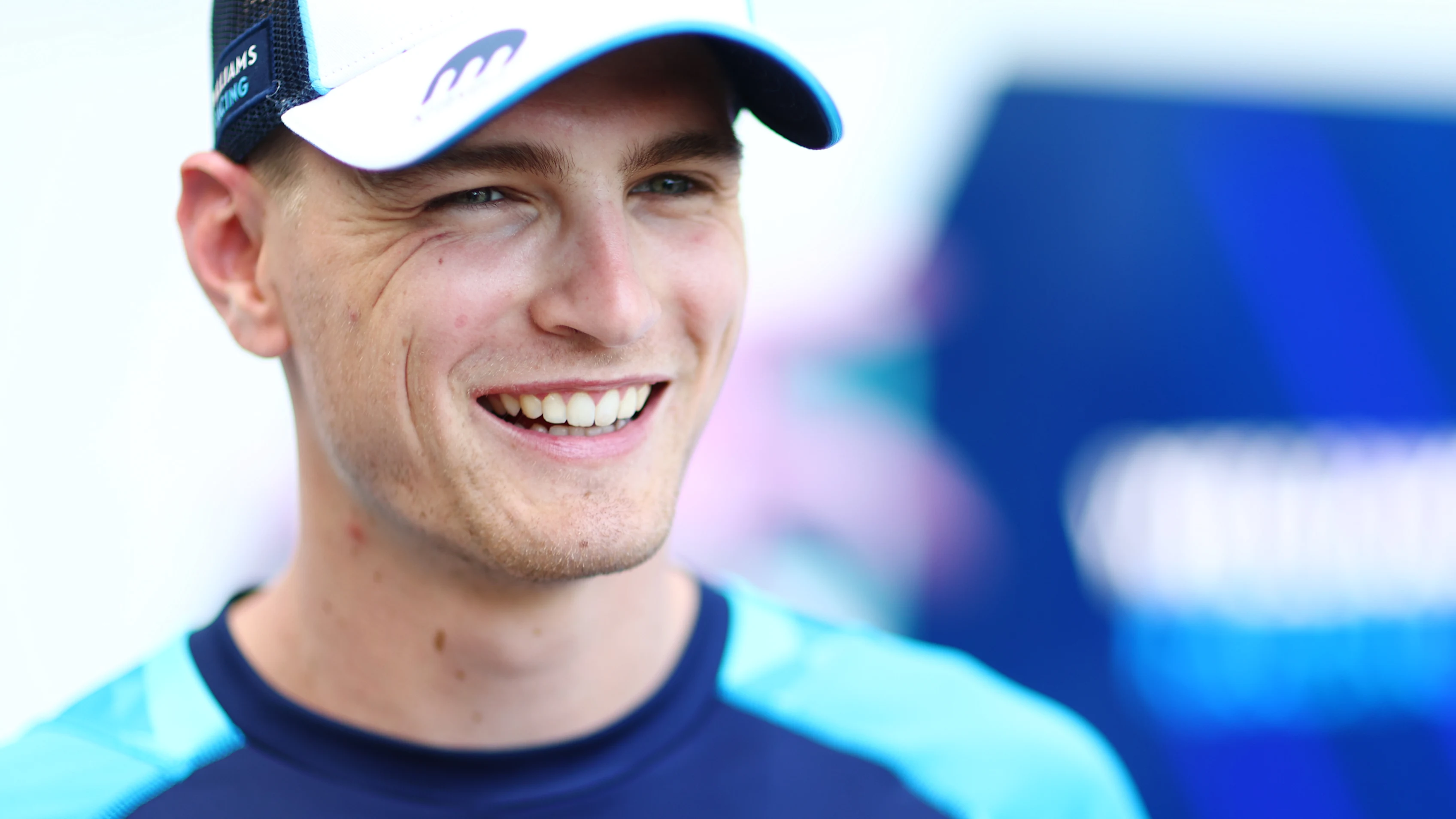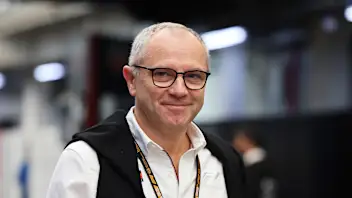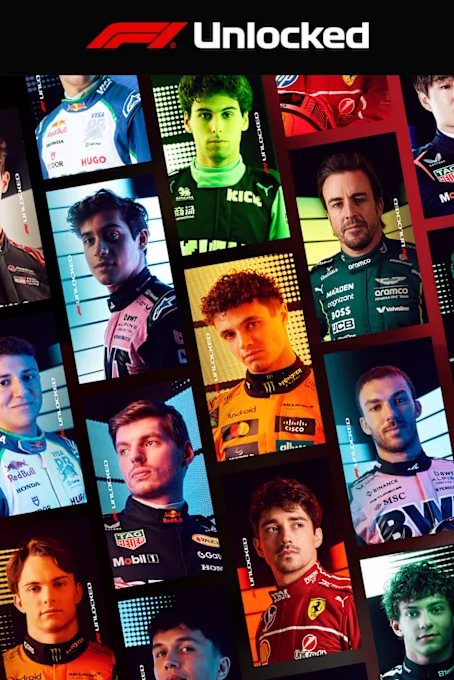FULL TRANSCRIPT: Read every word from Logan Sargeant's illuminating Beyond The Grid interview

Logan Sargeant is finding his feet in Formula 1 this season as he competes in his rookie campaign with Williams as the sport's only American driver.
The 22-year-old is this week's guest on our Beyond The Grid podcast, and you can read every word from his interview in the transcript below, listen to the episode in the audio player, or head here to catch it on your preferred platform.
Next Up
Related Articles
 Domenicali positive 2026 will be ‘incredible year’
Domenicali positive 2026 will be ‘incredible year’/Vasseur%20Bahrain%20Test%202.webp) Vasseur reflects on Ferrari's testing targets in Bahrain
Vasseur reflects on Ferrari's testing targets in Bahrain Watch as F1 TV unpack Day 3 of second Bahrain test
Watch as F1 TV unpack Day 3 of second Bahrain test/16x9%20single%20image%20-%202026-02-19T155002.636.webp) Antonelli ends Day 2 of second Bahrain test on top
Antonelli ends Day 2 of second Bahrain test on top /16x9%20single%20image%20-%202026-02-20T151837.591.webp) AS IT HAPPENED: Day 3 of the second pre-season test in Bahrain
AS IT HAPPENED: Day 3 of the second pre-season test in Bahrain/16x9%20single%20image%20-%202026-02-19T183139.714.webp) Lowdon warns not to ‘read too much’ into Cadillac issues
Lowdon warns not to ‘read too much’ into Cadillac issues
